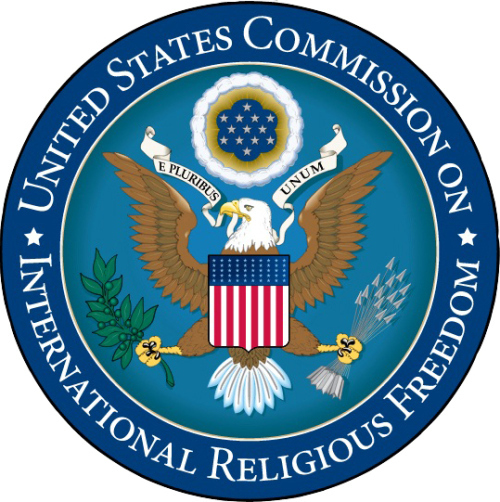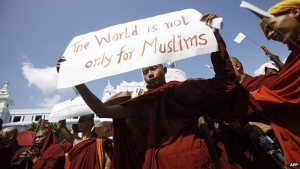David G. McAfee's Blog, page 4
May 3, 2013
Neil deGrasse Tyson Puts The Earth Into Perspective
Neil deGrasse Tyson Puts Things Into Perspective
By David G. McAfee
Astrophysicist Neil deGrasse Tyson came to Santa Barbara, CA, for the first time on Thursday, where he discussed everything from the latest cosmic discoveries to the demotion of Pluto in 2006.
Tyson, currently the Frederick P. Rose Director of the Hayden Planetarium at the Rose Center for Earth and Space, will be hosting an upcoming sequel to Carl Sagan’s Cosmos: A Personal Voyage television series on Fox.
Tyson, who has 18 honorary PhDs, mixed humor and science as he told the crowd about the relative insignificance of humanity in comparison to the universe. He started by taking off his boots to get comfortable on the stage. He then showed a famous satellite photo of Saturn in which our planet appears just barely visible in the distant background, taking up about six pixels of the photograph.
“There are people in those six pixels who are sure that the universe was created just for them,” Tyson said, comparing the photo to the 1990 Voyager 1 photograph taken of earth called the Pale Blue Dot. “Everyone you’ve ever known is in those six pixels. It really puts things into perspective.”
Tyson largely covered material not previously discussed in his books, including the history of America’s search for a planet with extra-terrestrial life, the theory of panspermia, the Higgs Boson discovery and the recent 60-foot meteor that landed near the Russian city of Chelyabinsk last month, injuring more than 1,000 people.
Tyson also discussed a deadly asteroid on a potential collision course for earth. Near-earth asteroid 99943 Apophis, named aptly for an ancient Egyptian spirit of evil and darkness, flies past the earth every seven years and could potentially strike earth in 2036, according to Tyson.
Tyson also discussed the defunding of the National Aeronautics and Space Administration and how to encourage further investments in the sciences. He said, in a capitalist system, realizing the great benefit science can have to our economy might be the key.
Tyson, originally scheduled for a 45-minute lecture, spoke for at least two hours before opening up the floor for questions and answers. He also signed copies of his books, including Space Chronicles: Facing the Ultimate Frontier and The Pluto Files: The Rise and Fall of America’s Favorite Planet.
UCSB Arts & Lectures presented the lecture at the Granada Theatre in Santa Barbara.

Photo by the Cassini spacecraft in 2006.


May 2, 2013
Buddhist Religious Violence Worsens In Burma: Report
The Burmese Buddhist-controlled government and military killed more than 1,000 Rohingya Muslims in the last year and has continued to forcibly promote Buddhism and discriminate against other minority religious groups, according to a report released Tuesday by the U.S. Commission on International Religious Freedom.
The report, which highlights the status of religious freedom globally and identifies those governments that are the most egregious violators, also includes recognition of severe atheist discrimination in a number of countries.
In Burma, Theraveda Buddhism is the dominant religious tradition and Muslims and Christians reportedly make up 8%-10% of the population. In contrast to common representations of Buddhists as inherently peaceful, minority religious groups are subject to pervasive surveillance, imprisonment, discrimination, societal violence, destruction or desecration of property and censorship of religious materials by Buddhists, according to the report.
“The military reportedly continues to limit religious worship and forcibly promote Buddhism as a means of pacification in these areas and targets Christians for forced labor, rape, intimidation, and destruction of religious sites,” the report says. “The government also continues to censor religious publications and prohibits the import of Bibles and Qu’rans in indigenous languages.”
The report found that the Burmese government shows preference for Buddhism through financial support and donations to monasteries, pagodas, monastic schools and missionary activities. Promotions to senior levels of the military and civil service are also reserved for Buddhists.
According to the report, Rohingya Muslims generally experience the worst treatment in Burma.
“Rohingya Muslims, who are denied Burmese citizenship, experience widespread discrimination, strict controls over their religious activities and ceremonies and societal violence that is often incited by Buddhist monks and carried out with impunity by mobs and local militias, including police in Rakhine (Arakhan) State,” the report says. “In the past year, over 1,000 Rohingya have been killed, their villages and religious structures destroyed, and women raped during attacks.”
In June 2012, sectarian violence between ethnic Arakanese Buddhists and ethnic Rohingya Muslims led to hundreds of deaths and an estimated 100,000 internally displaced. Provincial police did not stop initial violence and supported ongoing attacks by both Arakanese groups and Buddhist monks on Rohingya villages and the denial of humanitarian access to Rohingya areas and camps, according to the report.
According to BBC reports, the Burmese antagonism is spearheaded by the 969 group, led by a monk, Ashin Wirathu, who was jailed in 2003 for inciting religious hatred. Released in 2012, he has referred to himself bizarrely as “the Burmese Bin Laden.”
Despite the considerable international attention, however, the Burmese government, backed by a majority of popular opinion and groups promoting “Buddhist Nationalism,” continues to restrict humanitarian assistance, sanction clandestine violence through impunity, and encourage refugee flows to other Southeast Asia countries, according to the report.
In its 2013 report, the USCIRF recommended that the U.S. government re-designate Burma, China, Eritrea, Iran, North Korea, Saudi Arabia, Sudan and Uzbekistan as “countries of particular concern.”
The USCIRF, an independent federal advisory body created by the International Religious Freedom Act of 1998 to monitor religious freedom abuses abroad, outlined the state of religious freedom in 29 countries in its 2013 report.


May 1, 2013
Report: Atheist Discrimination Continues Worldwide
Report: Atheist Discrimination Continues Worldwide
By David G. McAfee
The U.S. Commission on International Religious Freedom on Tuesday released its 2013 Annual Report, which highlights the status of religious freedom globally and identifies those governments that are the most egregious violators and includes recognition of severe atheist discrimination in a number of countries.
The USCIRF, an independent federal advisory body created by the International Religious Freedom Act of 1998 to monitor religious freedom abuses abroad, recommended that the U.S. government re-designate Burma, China, Eritrea, Iran, North Korea, Saudi Arabia, Sudan and Uzbekistan as “countries of particular concern.” USCIRF also said Egypt, Iraq, Nigeria, Pakistan Tajikistan, Turkmenistan and Vietnam also meet the CPC threshold and should be so designated.
The report pointed to atheist activist Alber Saber, who was convicted in December by an Egyptian court on extremism charges for his posting of online content that allegedly “insulted God and cast doubt on the books of the Abrahamic religions” and “denied the existence of God and his creation of mankind.” Saber was sentenced to three years in prison and, after his release on appeal, he fled the country in January, according to the report.
Also in Egypt, according to the report, a law exists that allegedly guarantees religious freedom for all Egyptian citizens. But the law, which guarantees “the freedom to practice religious rites and to establish places of worship for the divine religions, as regulated by law,” may exclude atheists and other minority religious groups, according to the USCIRF.
“[B]ecause this concept of religious expression is limited to followers of the ‘divine’ religions, followers of other religions, such as Baha’is, as well as atheists and agnostics, may be excluded from enjoying basic freedoms,” the report says.
In Indonesia, according to the report, both governmental action and societal violence led to the imprisonment of numerous individuals who were accused of “spreading atheism.” In February 2012, for instance, West Sumatra civil servant Alexander Aan was arrested on charges of blasphemy for starting a Facebook page advocating atheism.
A Sijunjung district court in West Sumatra gave him a two-year sentence for “incitement,” allegedly because a local extremist Islamic Defenders Front group attacked and beat Aan for his Facebook postings. Aan’s lawyers are attempting to take his case to the Supreme Court, according to the USCIRF’s report.
The USCIRF also reports that, in June 2012 in Turkey, an Istanbul court indicted Fazil Say, a pianist, composer and self-described atheist, on charges of “publicly insulting religious values that are adopted by a part of the nation.” Say’s trial resumes this month as he fights a potential penalty of up to 18 months in prison.
The American Humanist Association on Wednesday applauded the USCIRF’s recognition of atheist discrimination in its 2013 report. The AHA said it submitted a report last year with the International Humanist and Ethical Union (IHEU) and other secular groups to USCIRF and the U.S. Department of State’s Office of International Religious Freedom outlining examples of international discrimination against atheists, agnostics, humanists and the non-religious, such as the case of Saber of Egypt, who denied the existence of god and sentenced to three years in prison.
“The U.S. government is beginning to pay attention to all forms of religious discrimination around the world, including actions against the non-religious,” American Humanist Association Executive Director Roy Speckhardt said Wednesday. “We are pleased that USCIRF is raising awareness that religious freedom includes standing up for nonbelievers.”
Leaders of the AHA will participate in a protest on May 2, outside the Embassy of Bangladesh in Washington, DC, to raise awareness of the persecution of several atheist bloggers who have been arrested due to the country’s strict blasphemy laws.

United States Commission on International Religious Freedom








